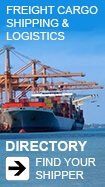Breaking Into The Trade Game: A Small Business Guide
Intro | Chapter 1 | International Business Plan | Chapter 2 | Chapter 3 | Chapter 4 | Chapter 5 | Chapter 6 | Chapter 7 | Chapter 8 | Part 2 | U.S. Department of Commerce | Small Business Development Centers | Foreign Chambers of Commerce in the U.S. | International Trade Organizations | Publications and Information Sources | International Calling CodesChapter 8 - Strategic Alliances & Foreign Investment Opportunities
Strategic Alliances and Foreign Investment Opportunities
If your company is interested in delving further into the international trade arena, licensing, joint ventures and off-shore operations should be explored. While direct exporting may be a profitable method of market entry for some businesses, licensing to a foreign company manufacturing rights to your product or setting up a foreign manufacturing joint venture may be viable alternatives.
In comparison, setting up off-shore manufacturing operations may be a more economical way of doing business: Kansas-based Extru-Tech, Inc. is exploring this possibility:
"Because of the high cost of shipping our products and the customs duties involved, we are seriously considering setting up a manufacturing facility in the Far East, our biggest market," says Extru-Tech President Kenneth E. Matson.
This chapter will discuss the relative advantages and disadvantages of alternatives to direct exporting, how to find licensing and joint venture manufacturing partners and how to finance overseas investment.
STRATEGIC ALLIANCES
Licensing
Licensing involves a contractual arrangement whereby a company licenses the rights to certain technological know-how, design and intellectual property to a foreign company in return for royalties or other kinds of payment. This arrangement worked well for a small business exporter from Virginia:
"We export our 'Peace Frogs' T-shirts directly to Japan, but in Spain per capita income is lower, competition from domestic producers is stronger, and tariffs are high, so we licensed a Barcelona-based company the rights to manufacture our product," says Peace Frogs president Catesby Jones.
Licensing offers a small business many advantages, such as rapid entry into foreign markets and virtually no capital requirements to establish manufacturing operations abroad. Returns are usually realized more quickly than for manufacturing ventures.
The disadvantages of licensing are that control may be lost over manufacturing and marketing, and more important, that the licensee may become a competitor if too much knowledge and know-how is transferred. Take care to protect trademarks and intellectual property.
One way to help ensure that your intellectual property is protected is to secure proper patent and trademark registration. In the interim before your patent is filed, you may ask a potential licensee to sign a confidentiality and non-disclosure agreement barring the licensee from manufacturing the product itself, or having it manufactured through third parties. Make sure such agreements are not in violation of laws in the host country.
Patents should be filed with the appropriate foreign government within one year of U.S. filing, in order to obtain patent protection under the Paris Convention, the international agreement on patents. Patent rules vary from country to country, so it is important to consult a competent international patent and trademark attorney.
Licensing to a foreign company the rights to your product will require a carefully crafted licensing agreement. Consulting an attorney is critical since rules on licensing also vary from country to country. Be careful that the agreement does not violate host country antitrust laws. Under the antitrust laws of many countries, the licensee cannot set the price at which a product will be re-sold by the licensor.
Foreign Manufacturing Joint Ventures
In contrast to licensing arrangements, foreign manufacturing joint ventures allow for the U.S. company to have a stake and management role in the foreign operation. Joint ventures require more of a direct investment than licensing and require training, management assistance and technology transfer.
Joint ventures can be equity or non-equity partnerships. Equity joint ventures are contractual arrangements with equal partners. Non-equity ventures involve the host country partner in the arrangement with a greater percentage. In some countries, a joint venture is the only way for a foreign company to set up operations. Laws often require that a certain percentage of stock belong to a citizen of the host country.
Foreign manufacturing joint ventures are risky in that geographical and cultural factors may interfere with the smooth running of operations. You will have to deal with entirely new management, located in a different country, whose first language may not be English.
Despite the drawbacks, using a foreign partner can have many benefits:
the partner will have intimate knowledge of the target market and may have business and political contacts to make market entry easier.
Partner Selection Issues
Finding a suitable partner is critical to the success of any licensing or manufacturing joint venture arrangement.However, this can be a time consuming and difficult process without proper assistance. Recognizing this fact, the United States government has a special program to facilitate overseas partner selection.
The DOC Matchmaker Trade Delegations are an excellent way to make joint venture and licensee contacts. Matchmakers provide one-on-one pre-screened business appointments for U.S. companies in a foreign country.
One U.S. company which was particularly successful as a result of a Matchmaker was Texas-based Made In USA:
"As a result of a Matchmaker trade mission, I was able to consummate a Finnish joint venture which resulted in $6 million in sales," says Jan Schwenk, a principal with Made in USA, a software development company. Exports now account for 25 percent of the company's business.
A limited number of Matchmaker Trade Delegations are held each year. For companies unable to take advantage of a Matchmaker, you may consider the DOC's "Gold Key Service." For U.S. firms planning to visit a country, US&FCS overseas staff will assist in developing a market strategy, setting up orientation briefings, making introductions to potential joint venture partners, providing interpreters for meetings and helping with follow-up planning. Fees vary from country to country.
The steps that can be involved in foreign partner selection are as follows:
- Contact your local DOC office. Discuss your target market and what kind of partner you are seeking. They can tell you whether a Matchmaker program fitting your needs is scheduled. If not, they will send your request to the appropriate Foreign Commercial Service representative abroad.
- A list of potential partners will be forwarded to you. Contact each one with letter of introduction.
- After responses from potential candidates are obtained, conduct a financial and business reference check on the most qualified candidates. If you are unable to do this in-house, use a credit reporting firm.
- Make a trip abroad, either with a Matchmaker Trade Delegation or individually, to meet with potential licensees or joint venture partners.
- Having made your final selection, begin contract negotiations with the assistance of legal counsel.
Foreign Investment Opportunities
Many companies find that, as a result of exporting profitably and licensing or joint venturing the manufacture of their products abroad, it becomes a more viable method of market entry to set up off-shore production operations.
Having only exported since 1988, Z-International, a Missouri-based label manufacturer, opened a plant in Germany in 1990. The plant now employs 12 people and invoiced over DM 4,000,000 in 1991. Company president Fritz Zschietzschmann said that Z-International's initial motivation in setting up the plant was to reach the European market, but now he says, "The doors to all of Eastern Europe will be open for business."
Off-shore manufacturing requires greater investment than licensing or joint venture manufacturing, but also affords the greatest amount of control over operations.
Additional factors that may induce a company to set up off-shore production include: high transportation costs, prohibitive tariffs or duties on imports, lower production costs and foreign government investment incentives, such as tax holidays.
If you are seriously considering setting up an off-shore manufacturing plant, you will need to assess whether to acquire an existing facility or to construct a new one. The key factors in this decision-making process are the legal and tax ramifications, where to set up operations, and how to finance the foreign investment. An off-shore operation may offer certain tax benefits and other inducements for your company to make an investment in their country.
Legal and Tax Implications
Much of the decision-making surrounding joint venture or off-shore manufacturing involves legal and tax issues. Some countries actively encourage and promote foreign investment. Countries receptive to, or in need of, foreign investment may have relaxed laws on kinds and amounts of foreign investments allowed and may even offer certain tax benefits.
U.S. and host country attorneys and accountants should be an integral part of the team you assemble to assess whether and where joint venture or off-shore manufacturing would be profitable for your company.
Location, Partner Selection and Financial Assistance
Foreign investment requires a substantial commitment of time and money and a certain amount of risk. Recognizing this fact, the United States government created a separate, business-oriented agency to support American investors entering the international marketplace.
Overseas Private Investment Corporation (OPIC)
OPIC is the lead agency assisting U.S. businesses interested in investment overseas.
OPIC programs are available if the project:
- is a new venture, or expansion of an existing business;
- is located in a developing country where OPIC operates (OPIC operates in 140 countries);
- will assist in the socio-economic development of the host country;
- is approved by the host government; and
- is consistent with the economic interests of the United States
and will not have a significant adverse effect on the United States economy or United States employment.
If your potential overseas investment fits these criteria, OPIC can be an extremely useful resource. OPIC offers a variety of programs, including: financing and political risk insurance to help protect your investment and several pre-investment services.
Pre-investment Assistance
OPIC sponsors investment missions to introduce U.S. businesses to key foreign private sector leaders, government officials and potential joint venture partners. Since its inception in 1975, investment missions to 45 countries have been organized.
SBA-guaranteed loans may be available to fund your company's participation in such missions.
In addition to pre-investment assistance, OPIC provides financing to assist in the setup of overseas operations and risk insurance to mitigate some of the problems associated with investment in developing countries.
Financing
Direct loans are available to ventures sponsored by, or significantly involving, U.S. small businesses or cooperatives. OPIC loans range from $500,000 to $6 million. Loan guarantees are also made to lending institutions in the range of $2 million to $25 million, but can be as large as $50 million.
OPIC has also underwritten a number of geographic venture funds, including the Africa Growth Fund, the East European Environmental Fund and the Latin America Growth Fund. If your project fits the criteria necessary to be eligible for access these funds, you may consider applying to the specific fund for financing assistance.
Insurance
Private investors may be hesitant to undertake long-term investments abroad, given the political uncertainties of many developing nations. To alleviate these concerns, OPIC insures U.S. investments against three major types of political risks: inconvertibility, expropriation and political violence, including civil strife.
Foreign Governments
Foreign governments, particularly in developing countries, often sponsor special agencies to aid and facilitate foreign direct investment. Some examples include the Mexican Investment Board (MIB), the Portuguese Trade Commission and the Bahrain Marketing and Promotions Office. These foreign investment promotion agencies can provide detailed market information, joint venture leads and make contacts with key officials. They often maintain offices in the United States.
Some countries may also have special funds or financing arrangements to spur foreign investment in particular sectors or geographical areas. Foreign investment promotion agencies can lead you to these sources. Contact the appropriate foreign embassy in the United States for the name of the agency which can assist you.
A FINAL WORD ON GOING GLOBAL
In Chapter 4, we discussed methods of market entry with an emphasis on exporting. In this concluding chapter, we focussed on licensing, joint venture manufacturing and off-shore production as options to be considered along with, or in addition to, exporting.
How you decide to enter overseas markets will depend on a variety of factors unique to your own small business. Going global can be a challenging experience for a small business, but the rewards can be substantial. As Roger Teigen, 1991 SBA Oklahoma Exporter of the Year, put it:
"There is a certain greater adulation in winning when we win in the export market rather than when we win in the U.S. market . . . it is exciting, it is exhilarating."
Let this optimism and enthusiasm be your guide as you go global. The U.S. Small Business Administration, as well as numerous other government agencies at the state and federal level, support and encourage your entry into the international arena. There are a multitude of programs and a worldwide staff to assist you.
Next: Part 2 - The Exporter's Directory
- Source from manufacturers worldwide
- Find inspection, freight services and more
- Access global trade resources and guides
- Be part of largest global trade community and much more...
- Be where your customers are!
- Promote and market your services
- Receive direct quote requests
- Back office support, set up regional offices and much more...



